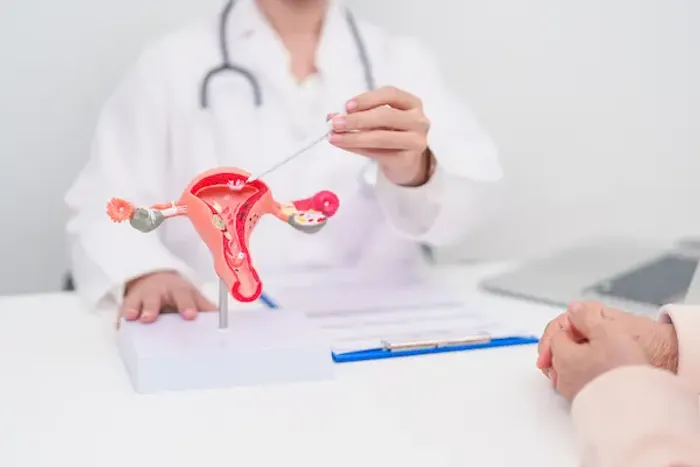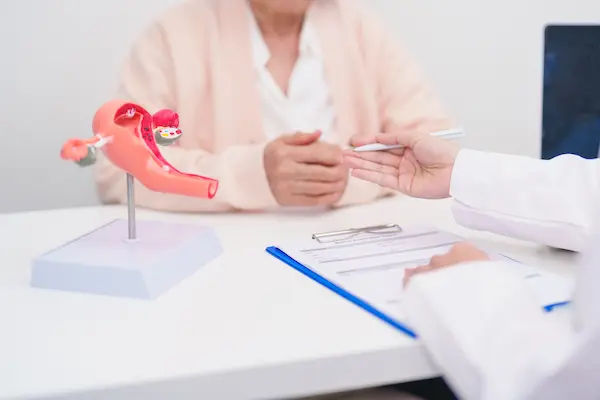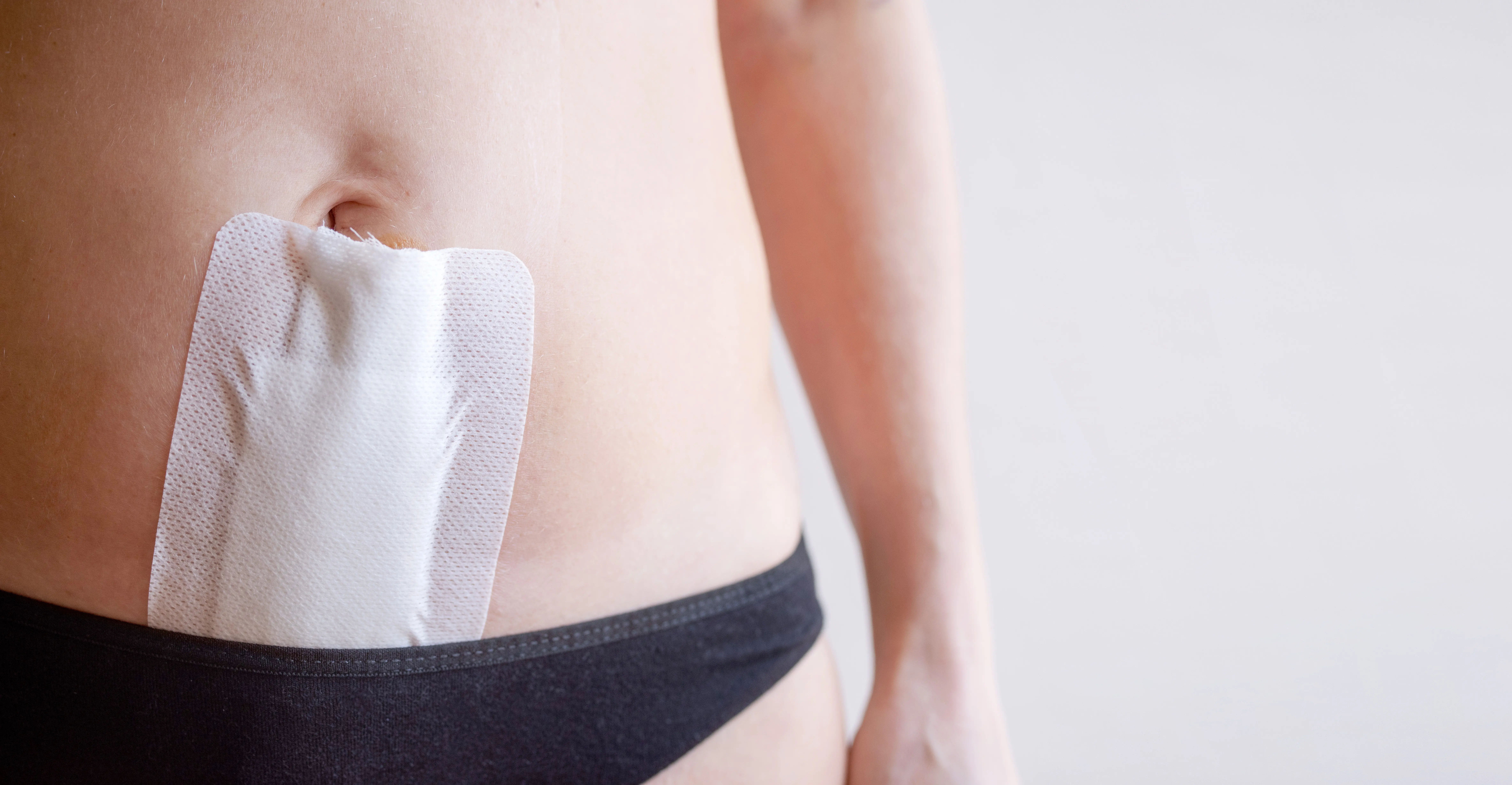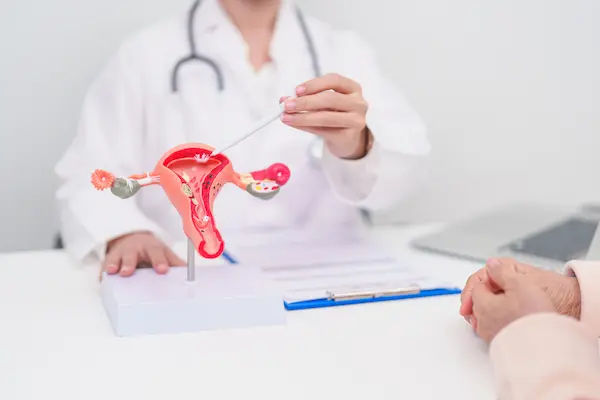Laparoscopic Stomach Before And After Hysterectomy
Discover what to expect from laparoscopic stomach changes before and after hysterectomy. Learn how this minimally invasive surgery affects your abdominal appearance, digestion, and overall recovery.

Written by Dr.Sonia Bhatt
Last updated on 13th Jan, 2026

Introduction
Undergoing a hysterectomy (surgical removal of the uterus) can be a life-changing decision for many women. If you're considering or have recently had a laparoscopic hysterectomy, you may wonder how it affects your stomach and overall well-being. This article explains what happens to your stomach before and after the procedure, along with recovery tips and lifestyle adjustments to help you heal smoothly.
Understanding Laparoscopic Hysterectomy
A laparoscopic hysterectomy is a minimally invasive surgery where small incisions (cuts) are made in the abdomen to remove the uterus. Compared to open surgery, it involves:
Less pain
Faster recovery
Smaller scars
Lower risk of complications
However, even with this advanced technique, your stomach (abdomen) goes through changes before and after the procedure.
Before the Hysterectomy: Preparing Your Stomach
Steps to follow before hysterectomy are:
1. Pre-Surgery Consultation
Your doctor will assess your health and discuss:
The type of hysterectomy (partial, total, or radical)
Whether ovaries and fallopian tubes will also be removed
Expected recovery time
2. Dietary Adjustments
A few days before surgery, avoid heavy, greasy, or gas-producing foods (beans, cabbage, carbonated drinks).
The night before, you may be asked to fast (no food or drink) to prevent complications during anaesthesia.
3. Bowel Preparation
Some doctors recommend a mild laxative or enema to clear the bowels, reducing bloating and discomfort post-surgery.
Consult Top Specialists for Personalised Tips
After the Hysterectomy: Stomach Changes and Recovery
Steps to follow after hysterectomy are:
1. Immediate Post-Surgery Effects (First Few Days)
Swelling and bloating: Due to gas used during laparoscopy, your stomach may feel full and tender.
Mild pain or discomfort: Around the incision sites, managed with prescribed painkillers.
Shoulder pain: A common side effect from the gas used in laparoscopy, which irritates the diaphragm.
2. Short-Term Recovery (First 2-6 Weeks)
Stomach tightness: As internal stitches heal, you may feel pulling or tightness.
Bruising or numbness: Around the incisions, which fades over time.
Digestive changes: Some women experience constipation due to anaesthesia and reduced activity.
3. Long-Term Changes (Months Later)
Scarring: Laparoscopic scars are small but may take months to fade.
Possible weight changes: Some women gain weight due to hormonal shifts (if ovaries are removed).
Core strength: Weak abdominal muscles may need gentle strengthening exercises.
Tips for a Smooth Recovery
Some of the tips for a smooth recovery are:
1. Manage Pain and Discomfort
Take prescribed pain medication as directed.
Use a heating pad (low setting) for soreness.
Walk gently to reduce gas and improve circulation.
2. Support Your Digestive System
Drink plenty of water.
Eat fibre-rich foods (fruits, vegetables, whole grains) to prevent constipation.
Avoid heavy lifting and straining.
3. Gradual Return to Activity
First week: Rest, take short walks.
After 2 weeks: Light household tasks (no heavy lifting).
After 6 weeks: Slowly resume exercise (with doctor’s approval).
4. Watch for Warning Signs
Contact your doctor if you experience:
Severe pain or swelling
Fever or foul-smelling discharge
Heavy bleeding
Persistent nausea/vomiting
Will My Stomach Look Different After Hysterectomy?
Many women worry about changes in their stomach shape. Here’s what to expect:
No major change in appearance: The uterus is small, so removal doesn’t drastically alter stomach shape.
Possible bloating: Temporary swelling may last a few weeks.
Weight gain: Only if hormonal changes (from ovary removal) affect metabolism.
When to Seek Help?
If you notice unusual symptoms like severe pain, infection signs, or emotional distress, consult your doctor immediately. Apollo 24|7 offers post-hysterectomy care consultations to ensure a smooth recovery.
Conclusion
A laparoscopic hysterectomy is a safe and effective procedure, but recovery takes time. By understanding the changes in your stomach before and after surgery, following a healthy diet, and gradually resuming activities, you can heal comfortably. Remember, every woman’s experience is different. Listen to your body and seek support when needed.
Consult Top Obstetrics and Gynaecology Surgeon
Consult Top Specialists for Personalised Tips

Dr. Vandana Sinha
Obstetrician and Gynaecologist
14 Years • MBBS, MS(Obs & Gyn), Fellow in Gynec-Onco. & Gynec Endoscopy
Ahmedabad
Apollo Hospitals Gandhinagar, Ahmedabad
(200+ Patients)

Dr. S Asha Devi
Obstetrician and Gynaecologist
13 Years • MS.OG .,MRCOG (UK)
Chennai
Apollo Speciality Hospitals OMR, Chennai
(100+ Patients)

Dr Lekha K L
Obstetrician and Gynaecologist
15 Years • MBBS,DGO & DNB in Obstetrics and Gynecology
Angamaly
Apollo Hospitals Karukutty, Angamaly

Dr. Kavya A
Obstetrician and Gynaecologist
11 Years • MBBS, DNB - obstetrics and gynaecology
Bengaluru
Apollo Clinic, JP nagar, Bengaluru

Dr. Pooja Sahu
Obstetrician and Gynaecologist
8 Years • MBBS, MS (Obstetrics & Gynaecology)
Jajpur
satyapriya sahoo, Jajpur
Consult Top Obstetrics and Gynaecology Surgeon

Dr. Vandana Sinha
Obstetrician and Gynaecologist
14 Years • MBBS, MS(Obs & Gyn), Fellow in Gynec-Onco. & Gynec Endoscopy
Ahmedabad
Apollo Hospitals Gandhinagar, Ahmedabad
(200+ Patients)

Dr. S Asha Devi
Obstetrician and Gynaecologist
13 Years • MS.OG .,MRCOG (UK)
Chennai
Apollo Speciality Hospitals OMR, Chennai
(100+ Patients)

Dr Lekha K L
Obstetrician and Gynaecologist
15 Years • MBBS,DGO & DNB in Obstetrics and Gynecology
Angamaly
Apollo Hospitals Karukutty, Angamaly

Dr. Kavya A
Obstetrician and Gynaecologist
11 Years • MBBS, DNB - obstetrics and gynaecology
Bengaluru
Apollo Clinic, JP nagar, Bengaluru

Dr. Pooja Sahu
Obstetrician and Gynaecologist
8 Years • MBBS, MS (Obstetrics & Gynaecology)
Jajpur
satyapriya sahoo, Jajpur




